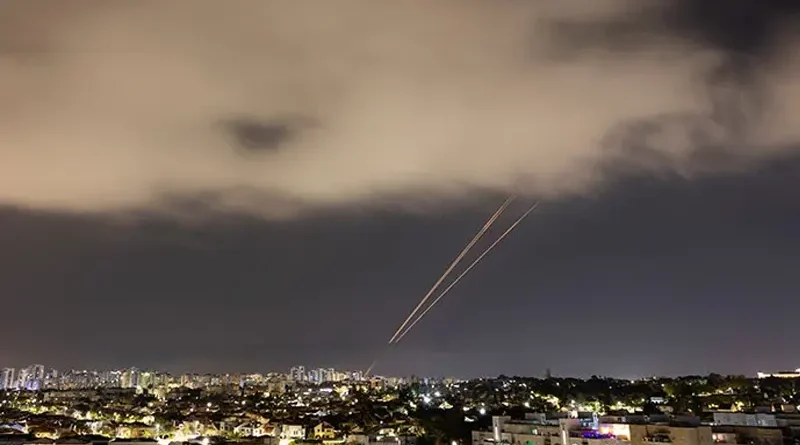Pakistan blames ‘breakdown of diplomacy’ after Iran’s attack on Israel
Pakistan Sunday expressed its “deep concern” over the recent escalation in the Middle East following Iran’s attack on Israel terming the development as a “failure of diplomacy”.
“Pakistan is watching with deep concern the ongoing developments in the Middle East […] Today’s developments demonstrate the consequences of the breakdown of diplomacy,” the Foreign Office said in a statement.
The FO’s statement comes after Tehran launched more than 300 drones and missiles at Israel since Saturday in retaliation to the Israeli airstrike on its Damascus consulate that killed several people including Iran’s Iran’s elite Islamic Revolutionary Guard Corps (IRGC) senior commanders Mohammed Reza Zahedi and senior commander Mohammad Hadi Haji Rahimi.
Israeli army spokesperson Rear Admiral Daniel Hagari has confirmed that Iranian missiles struck Israel causing light damage to a military installation in the south of the country, adding that 99% of the missiles were intercepted and shot down.
Yemen’s Iran-backed Houthi rebels also launched multiple drones at Israel after Iran initiated a retaliatory drone assault against Israel, security firm Ambrey said late Saturday.
Iran has also warned Israel of a larger attack on its territory should it retaliate against Tehran’s overnight drone and missile attack on Sunday, adding that Washington has been warned not to back Israeli military action.
“Our response will be much larger than tonight’s military action if Israel retaliates against Iran,” armed forces chief of staff Major General Mohammad Bagheri told state TV, adding that Tehran warned Washington that any backing of Israeli retaliation would result in US bases being targeted.
Calling on “all parties to exercise utmost restraint and move towards de-escalation”, Pakistan has stressed the need to stabilise the situation and restore peace as today’s developments reflect the consequences of the breakdown of diplomacy.
“These also underline the grave implications in cases where the UN Security Council is unable to fulfil its responsibilities of maintaining international peace and security,” the FO added while recalling Islamabad’s efforts to highlight the necessity of international efforts to prevent the expansion of hostilities in the region and for a ceasefire in Gaza.
Several countries including China and Saudi Arabia have also expressed concern while calling for calm and restraint to prevent any further escalation in the region.
Owing to the development, the UNSC is set to meet today after Israel called for the UN’s executive body’s meeting following Tehran’s attack.
Furthermore, G7 leaders are set to discuss the situation on a video call today upon Italy’s request which currently holds the group’s presidency.

